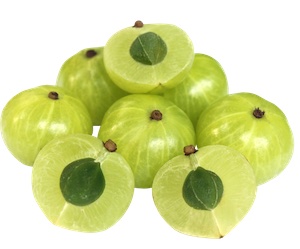Native to the Indian subcontinent, this potent botanical species is hailed for its incredible nutritional benefits. Botanically known as Phyllanthus emblica, the plant is most often referred to by its common name, Amla. Recognized for its small, round fruit, the tree thrives in tropical climates, producing berries with a distinct, tangy flavor. The greenish-yellow fruit is rich in vitamin C, a key source of antioxidants that help fortify the body’s immune system. Apart from its edible fruit, the plant’s leaves and bark are utilized in traditional Ayurvedic medicine, serving numerous health and wellness applications. With its vibrant green leaves and beautiful yellow flowers, the tree is also a visual delight. Cultivating this species has vast potential for both nutritional and aesthetic purposes, fostering a connection to the earth’s natural bounty. It stands as a testament to the inherent power and benefits of traditional botanical species.
Amla for Diabetes
Indian gooseberry, commonly known as amla, has long been associated with numerous health benefits, including its potential role in diabetes management. Studies indicate that this sour, vitamin C-rich fruit may positively influence blood glucose levels, suggesting it as a natural remedy for diabetes (Singh et al., 2011). Compounds within Indian gooseberry, such as polyphenols, have demonstrated anti-diabetic properties. They work to regulate carbohydrate metabolism, resulting in decreased blood sugar levels. Particularly, this fruit’s rich antioxidant content helps to mitigate oxidative stress, which is often elevated in individuals with diabetes. Moreover, the lipid-lowering effect of Indian gooseberry might also be beneficial for those with diabetes, as they often exhibit dyslipidemia. Therefore, including Indian gooseberry in a diabetic diet could potentially assist in maintaining blood sugar levels. However, while amalaki shows promise, it’s essential to remember that it should be used as an adjunct to conventional therapy, not as a standalone treatment. Furthermore, more extensive clinical trials are required to fully understand its role in diabetes management.
When this fruit is used along with other herbs like Jamun Fruit, haritaki, gudmar, vijaysar and fenugreek seeds, it effectively helps in the management of blood sugar levels. Moolika Ayurveda Diasol Capsules contain all these herbs and it is the best ayurvedic medicine for diabetes. This herb is also an ingredient in Obenil – ayurvedic capsules for weight loss
Amla for Weight Loss
Amla, is a potent superfruit that has been traditionally utilized in Ayurvedic medicine in weight management. Its weight loss benefits can be attributed to its rich content of fiber and antioxidants, which are known to boost metabolism and aid in efficient calorie burning. It has low sugar content and a high concentration of polyphenols, which inhibit the creation of new fat cells, thus assisting in weight management.
In addition, a 2009 study published in the Journal of Agricultural and Food Chemistry found that amalaki, another name for this fruit, has significant anti-obesity properties. The high vitamin C content present helps in the production of carnitine, a molecule that plays a crucial role in the conversion of fat into energy.
Moreover, its usage in weight loss is not just confined to burning fats. Its positive impact on insulin resistance also promotes weight loss by managing blood sugar levels. Hence, incorporating this superfruit into your diet could provide several benefits for individuals aiming to lose weight.
Amla for Liver Health
The liver plays a crucial role in the body’s metabolic processes, making its health a key concern. One substance that could promote liver health is the fruit called amla, or Indian gooseberry. Packed with vitamin C and a plethora of antioxidants, this humble fruit is known to promote detoxification, a core liver function. These potent antioxidants fight against oxidative stress and inflammation, two common precursors to liver disease.
Research has pointed to the protective impact of this fruit on the liver. One such study published in the “Journal of Ethnopharmacology” found that the regular consumption of this fruit, also known as amalaki, led to a reduction in liver fibrosis in subjects. The fibrosis was induced by toxins, which the fruit’s properties helped to combat.
Amla’s high vitamin C content aids in the production of glutathione, a powerful antioxidant that is vital for liver detoxification. By increasing the levels of this crucial antioxidant, the fruit can enhance liver function and health.
The potential of this fruit for liver health could, therefore, be immense. Including it in a balanced diet might be beneficial to support liver health and overall well-being.
Amla for Stamina, energy and Erectile Dysfunction
Erectile dysfunction (ED) is a common concern affecting a significant portion of the male population. Certain natural remedies have been associated with potential benefits to alleviate ED, one such being the widely known fruit from India – amla.
This fruit, scientifically known as Phyllanthus emblica, is a potent source of antioxidants and has been used in traditional medicine systems for centuries. Its antioxidants, notably vitamin C, can reduce oxidative stress in the body, contributing to improved blood flow and endothelial function, which are essential for maintaining erectile function.
In addition to antioxidants, amla contains a plethora of other beneficial compounds including flavonoids and polyphenols. These compounds exhibit anti-inflammatory properties that could potentially alleviate ED by mitigating the inflammatory processes linked to the condition.
Moreover, the fruit is associated with regulation of the endocrine system, particularly impacting hormonal balance, another essential factor in sexual health. Its adaptogenic properties help in stress management, further contributing to better sexual performance.
Amla in Ayurveda
Often hailed as a powerhouse of health benefits, this versatile medicinal fruit, known as the ‘Dhatri’ or divine healer, is a cornerstone of traditional Indian healing methodologies. Revered in Ayurveda, its potency is linked to its rich concentration of antioxidants and vitamin C.
According to the principles of Ayurveda, the ‘Dhatri’ assists in balancing the three doshas – Vata, Pitta, and Kapha – due to its unique ‘tridoshic’ nature. Regular consumption can result in a healthier immune response, potentially contributing to increased vitality and overall wellbeing.
This potent fruit is also renowned for its rejuvenating properties. Being a natural ‘Rasayana’ or rejuvenative, it aids in delaying the aging process and enhancing vitality, providing a natural source of youthfulness.
The divine healer is recognized for its profound impact on digestive health as well. It aids in eliminating toxins, or ‘Ama’, from the body, promoting regular bowel movements and alleviating digestive discomfort.
Moreover, the ‘Dhatri’ is also known to enhance mental health. It aids in calming the mind, reducing stress and anxiety levels, potentially contributing to improved cognitive functioning.
In essence, this Ayurvedic superfruit, with its immense healing and rejuvenating properties, offers a multitude of health benefits that contribute to a holistically healthy lifestyle.
Reference:
Chaudhari, L. K., Jawale, B. A., Sharma, S., Sharma, H., Kumar, C. D., & Kulkarni, P. A. (2012). Antioxidant and antiobesity potential of Emblica officinalis (Gaertn.) L. leaves extract. Journal of Ayurveda and Integrative Medicine, 3(2), 64–67. https://doi.org/10.4103/0975-9476.96516
Singh, E., Sharma, S., Pareek, A., Dwivedi, J., Yadav, S., Sharma, S., & Sarker, S. D. (2011). Phytochemistry, traditional uses and cancer chemopreventive activity of Amla (Phyllanthus emblica): The sustainer. Journal of Applied Pharmaceutical Science, 02(01), 176-183.
Nariya, M., Shukla, V., Jain, S., & Ravishankar, B. (2009). Comparison of enteroprotective efficacy of triphala formulations (Indian Herbal Drug) on methotrexate-induced small intestinal damage in rats. Journal of Ethnopharmacology, 122(3), 545-553. doi: 10.1016/j.jep.2009.02.003.
Upadhaya, S., et al. (2020). A review on the pharmacological aspects of Emblica officinalis. Biomed Pharmacother, 125, 109962.
Regenerate response


